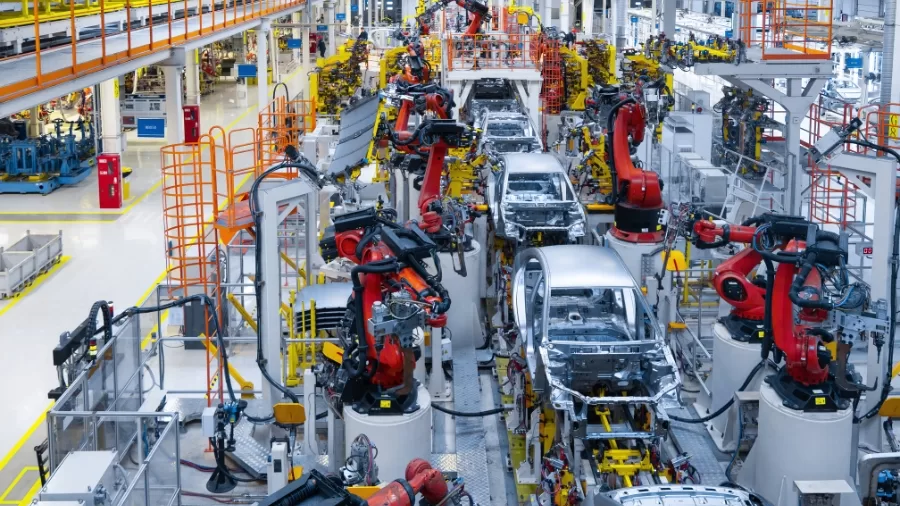Auto
UK Vehicle Manufacturing Slumps to Historic Lows as 2025 Unfolds

- UK vehicle production plunged to its lowest level since 1953, with output plunging 12% to around 417,200 units in the first half of 2025, largely driven by US import tariffs and factory retooling for electric vehicles.
- Despite this historic low, electrified vehicles hit a record 41.5% share of output, and the SMMT forecasts a 6.4% rebound in 2026, supported by a US–UK tariff deal and improved trade conditions.
In mid‑2025, UK vehicle production hit its lowest point since 1953 outside of the Covid lockdowns. Total manufacturing in the first half dropped by 12% to just 417,200 units, making it the weakest start to a year in more than seven decades.
April and May: A Dramatic Decline
In April, combined car and van production slumped 15.8%, down to 59,203 units, the lowest monthly total since April 1952, excluding the 2020 freeze.
In May, output collapsed by 32.8%, yielding just 49,810 vehicles—the weakest May on record since 1949, barring pandemic disruptions.
This sustained decline stretches into May, marking five straight months of falling volumes and driving year‑to‑date figures down to levels not seen since the early 1950s.
What’s Driving the Collapse?
Several converging pressures have battered the UK auto sector:
US import tariffs imposed by the Trump administration in March added 25% duties, prompting major manufacturers—including Jaguar Land Rover and Aston Martin—to suspend exports, causing US shipments to plunge by over 55% and EU deliveries to fall by about 22.5%.
The contractions were further aggravated by a decrease in production capacities due to the closure of some manufacturing units, like the Stellantis Vauxhall van plant in Luton, and the retooling of plants for EV models.
The inevitable transition towards EVs has also imposed temporary shutdowns and a slowdown in production, especially for those factories contending with setting up new lines for zero-emission manufacturing.
Signs of Hope on the Horizon
Despite the decline, there are glimmers of recovery:
A new UK–US trade agreement, effective from 30 June 2025, caps tariff rates at 10% on the first 100,000 UK-made cars exported annually—down from 25%—potentially easing trade tensions and resuming US shipments.
Structural support for revival is provided by the newly released industrial and trade strategy of the UK government, which includes commitments to lowering energy costs by up to 25%.
EV Growth Provides a Bright Spot
Even as overall output dipped, the electrified segment showed resilience:
In the first half of 2025, vehicles with electrification—including BEVs, PHEVs and HEVs—rose 1.8% to 160,107 units, accounting for 41.5% of total production—a record share in UK automotive history.
Still, confusion around the UK government’s £650 million EV subsidy scheme, offering up to £3,750 per vehicle priced under £37,000, may delay consumer uptake and cause manufacturers to miss zero‑emission mandates.
Industry Outlook & Forecasts
The SMMT now projects UK total vehicle production to reach 755,000 units in 2025, down from earlier expectations of 815,000 and far short of the 2 million unit target set in 2017.
A modest recovery is forecast in 2026, alongside a near 6.4% growth exceeding 800,000 units. But significant growth may still require new trade deals and stronger consumer demand.
Summary
UK vehicle making has gone down to its lowest since 1953, due to external trade shocks and internal structural changes. While electrification promises a somewhat distant future, it is now able to bear resolution this year; one’s output is expected to remain subdued through 2025. Industry believes new trading deals, plus an industrial policy, may have set the worst behind it, and, somehow, it may take a few years to rebuild to past outputs.























































